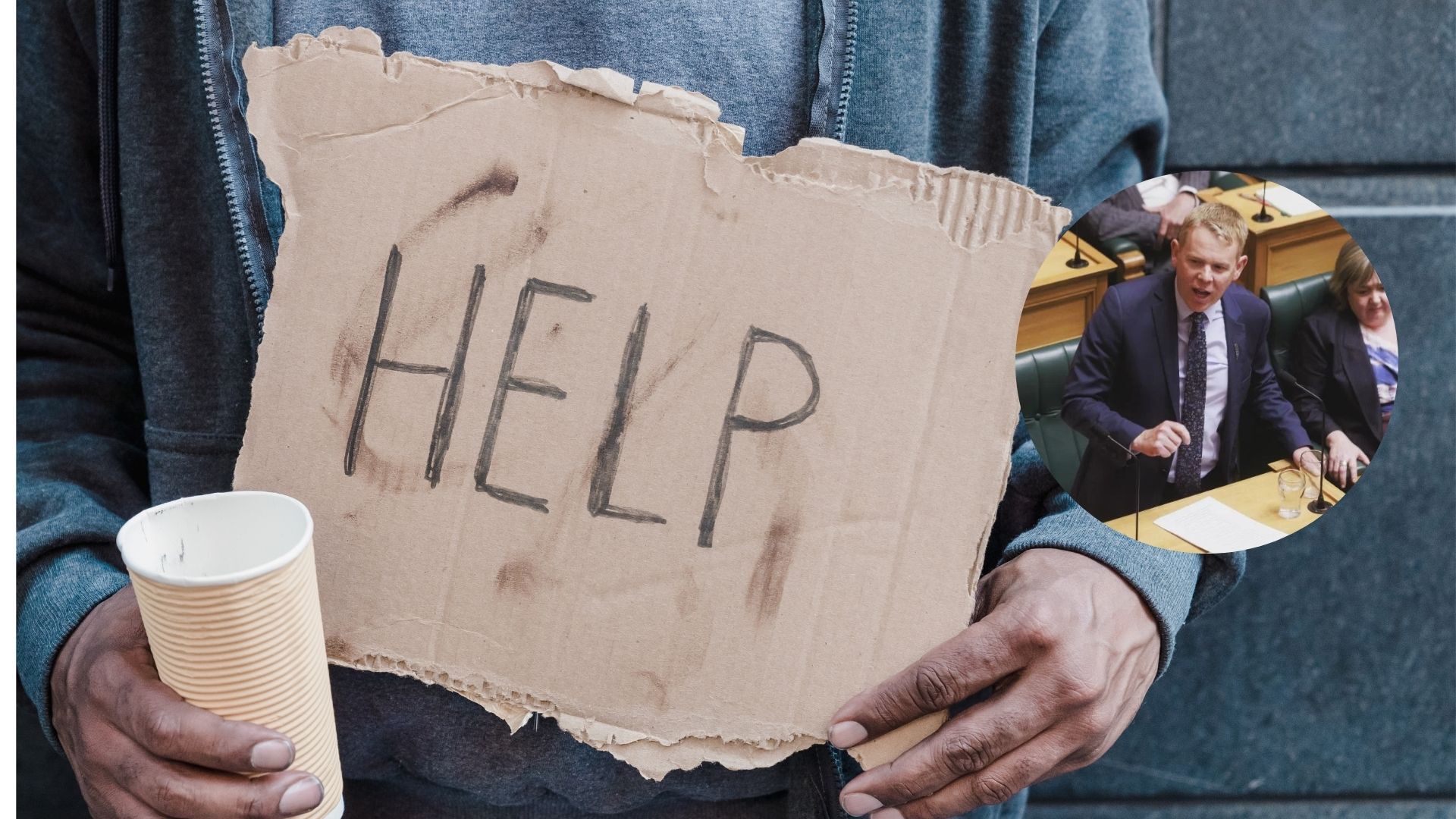Top Stories
New Law Proposal to Ban Begging and Rough Sleeping in Cities

The New Zealand government is considering a controversial proposal to ban begging and rough sleeping in urban areas, particularly in central business districts. This initiative, backed by Ministers and members of the National Party, aims to empower law enforcement agencies to “move on” individuals experiencing homelessness. The proposal has sparked a significant debate regarding the treatment of homelessness as either a criminal issue or a social policy challenge.
Government Officials Confirm Discussions
On March 15, 2024, Police Minister Mark Mitchell and Justice Minister Paul Goldsmith announced that discussions are underway to draft legislation permitting police to require homeless individuals to vacate public spaces. This confirmation followed Prime Minister Christopher Luxon‘s ambiguous response in Parliament when he faced repeated inquiries from Labour leader Chris Hipkins about potential law changes related to homelessness.
During his parliamentary session, Luxon stated that “there have been no Cabinet decisions or discussion on that topic.” However, subsequent comments from Mitchell indicated that the matter is actively being explored. He revealed that Goldsmith is collaborating with an advisory group and the Ministry of Justice to formulate the relevant bill.
Mitchell expressed his support for the proposed measures, citing safety and social concerns associated with homelessness in city centres. He stated, “At the moment, there are no powers to be able to move people on who come in and create social issues and intimidate people. They’re at risk themselves.”
Opposition to the Proposal
Critics of the proposal, including Hipkins, argue that criminalizing homelessness does not address the underlying issues. Hipkins described the initiative as “misguided,” stating, “Making it illegal to be homeless doesn’t make someone not-homeless. Pushing them out of a CBD into a suburban area does not make them not-homeless.”
This is not the first instance of Goldsmith advocating for measures that limit the presence of homeless individuals in urban areas. In 2008, while serving on the Auckland Council, he supported similar regulations. However, he downplayed his previous stance, quipping, “2008? I don’t even remember 2008.”
Goldsmith emphasized that the current proposal is a response to concerns raised by residents, businesses, and community groups regarding the state of Auckland’s central business district. He remarked, “A lot of people are concerned about the sad state of affairs in the CBD of Auckland. We can do better.”
The advisory group involved in the discussions includes representatives from various sectors, such as dairy owners’ lobbyist Sunny Kaushal, Michael Hill Jewellers manager Michael Bell, liquor store operator Ash Parmar, and Retail NZ chief executive Carolyn Young. Social service organizations like the Māori Wardens and Auckland City Mission are also contributing to the conversation.
While the proposal has yet to be presented to Cabinet, it has already ignited a debate about the complexities of homelessness and its implications for urban policy. As discussions continue, the government faces the challenge of balancing public safety concerns with the need for compassionate solutions to homelessness.
-

 World3 months ago
World3 months agoTest Your Knowledge: Take the Herald’s Afternoon Quiz Today
-

 Sports3 months ago
Sports3 months agoPM Faces Backlash from Fans During Netball Trophy Ceremony
-

 Lifestyle3 months ago
Lifestyle3 months agoDunedin Designers Win Top Award at Hokonui Fashion Event
-

 Sports3 months ago
Sports3 months agoLiam Lawson Launches New Era for Racing Bulls with Strong Start
-

 Lifestyle3 months ago
Lifestyle3 months agoDisney Fan Reveals Dress Code Tips for Park Visitors
-

 Health3 months ago
Health3 months agoWalking Faster Offers Major Health Benefits for Older Adults
-

 World3 months ago
World3 months agoCoalition Forms to Preserve Māori Wards in Hawke’s Bay
-

 Politics3 months ago
Politics3 months agoScots Rally with Humor and Music to Protest Trump’s Visit
-

 Top Stories3 months ago
Top Stories3 months agoUK and India Finalize Trade Deal to Boost Economic Ties
-

 Entertainment3 months ago
Entertainment3 months agoExperience the Excitement of ‘Chief of War’ in Oʻahu
-

 World3 months ago
World3 months agoHuntly Begins Water Pipe Flushing to Resolve Brown Water Issue
-

 Science3 months ago
Science3 months agoNew Interactive Map Reveals Wairarapa Valley’s Geological Secrets









